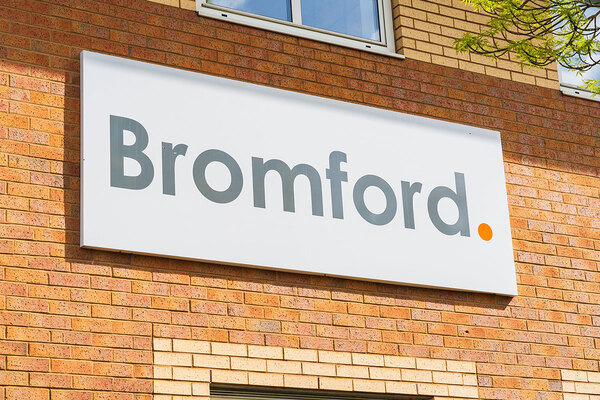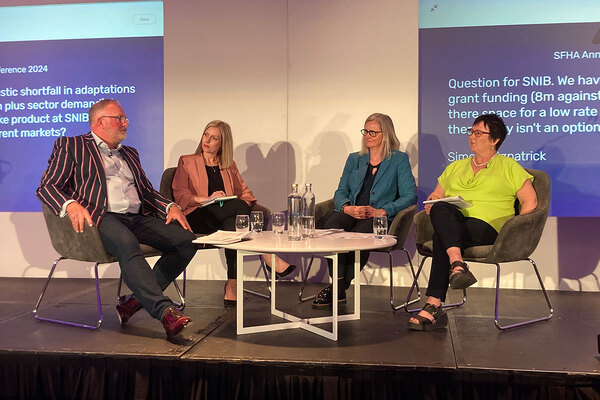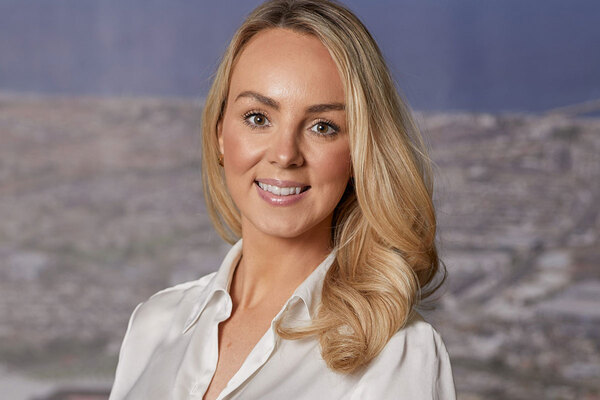You are viewing 1 of your 1 free articles
What you need to understand about sustainability-linked loans
Housing associations need a strong sustainability strategy to fully engage with lenders’ ESG products, writes Alice Overton, partner at Devonshires
In recent years, burgeoning regulatory requirements to report on environmental, social and governance (ESG) performance have been layered on to social pressure to be more environmentally and socially responsible, as well as a widespread appetite for integrity, comparability and impactful transition.
The flipside has been fierce scrutiny of any sustainability-related credentials and claims, and an intense fear of any perceived or actual ‘greenwashing’ and the associated reputational damage.
It has become increasingly common for funders seeking to contribute to and support environmental and social responsibility to advance funding on sustainability-linked terms. A sustainability-linked loan (SLL) is the name given to a loan when its pricing structure directly incentivises performance by the borrower. The rate of interest will vary based on the borrower’s achievement of specific, predetermined sustainability performance targets over the life of the loan.
To advance credible products and a well-functioning market, the Loan Market Association (LMA), the Asia Pacific Loan Market Association and the US Loan Syndications and Trading Association (LSTA) have published the Sustainability Linked Loan Principles (SLLPs) as a “recommended framework to articulate the fundamental characteristics of an SLL”.
The SLLPs are accompanied by amplifying guidance, and both the LMA and the LSTA have produced template drafting for facility agreements. The latest updates to the SLLPs and related guidance were issued in February 2023. They are also consistent with the corresponding Sustainability-Linked Bond Principles published and maintained by the International Capital Markets Association.
“It has become increasingly common for funders seeking to contribute to and support environmental and social responsibility to advance funding on sustainability-linked terms”
The SLLPs set out five core components that must be present for a loan to be correctly categorised as an SLL: (i) the selection of material, relevant, measurable key performance indicators (ii) the ambition and calibration of the performance targets (iii) the economic characteristics of the loan (iv) disclosure and (v) independent verification. The related guidance states that “the SLLP[s] are drafted so as to give a clear framework of processes to be followed in order to maintain the integrity of SLLs.”
They encourage close adherence to the core components as a means of avoiding greenwashing: “All market participants should seek to preserve the integrity of the product at all times, as any accusation of greenwashing in connection with SLLs undermines the product as a whole and may cause serious reputational risk for the institutions involved.”
Moreover, they request that any loan facilities with a margin ratchet linked to ESG performance should align with the SLLPs, in order to not confuse or dilute the credibility of the SLL product.
The trade associations maintain that they do not drive changes to the SLLPs, but rather that changes are introduced in response to the feedback they receive from the market. Compliance with the SLLPs is voluntary, but, in recognition of the benefit and necessity of consistency across the market, we rarely see funders willing to deviate from them.
The Financial Conduct Authority (FCA), which does not regulate the sustainable finance market directly, but does want to ensure that the market operates well, has openly endorsed the SLLPs as embedding good practice.
In June 2023, the UK regulator issued an open letter to stakeholders in the SLL market regarding its findings from engagement exercises earlier that year. The FCA identified areas of particular concern to be credibility, market integrity and greenwashing. It encouraged industry-led action (with specific mention of the SLLPs) to help scale the SLL market with integrity.
“Compliance with the SLLPs is voluntary but, in recognition of the benefit and necessity of consistency across the market, we rarely see funders willing to deviate from them”
Housing association borrowers have much to offer their lenders in terms of sustainability credentials. As social and, often, charitable entities, they are looking to improve the sustainability of the homes and communities they are responsible for, in line with and beyond the applicable regulatory expectations and requirements.
However, frequently, the right data and targets for their business are not available when they enter into financing arrangements. To avoid delaying implementation, borrowers and their lenders often agree to include ‘placeholder’ drafting at signing, in acknowledgement of the parties’ intention to convert the loan to SLL terms later. In the market, this is referred to as a ‘sleeping SLL’.
Embedding SLL mechanics in loan documentation in this way can be useful for borrowers, in that it reduces the costs and time involved in converting the facility into a fully operational SLL later. However, some lenders are currently less agreeable to including placeholder language, because of their anti-greenwashing policies, potential reputational risk and difficulties within their portfolio reporting requirements.
The LMA has said that “the sleeping construct is something we are deliberating as we approach the first anniversary”. Thus, in due course, we may see the LMA move closer to the position taken by the LSTA, which has made template sleeping SLL drafting available to the US loans market that is subject to guardrails for usage in the accompanying drafting guidance.
In any event, the market will continue to seek to steer a course that maintains and does not undermine the credibility of the SLL product. Therefore, in order to take full advantage of margin incentives offered by lenders, housing associations should have a clear sustainability strategy in place, with key performance indicators and targets that meet the SLLPs criteria ready to go when entering into discussions with the lenders.
Alice Overton, partner, Devonshires
Sign up for our development and finance newsletter
Already have an account? Click here to manage your newsletters













